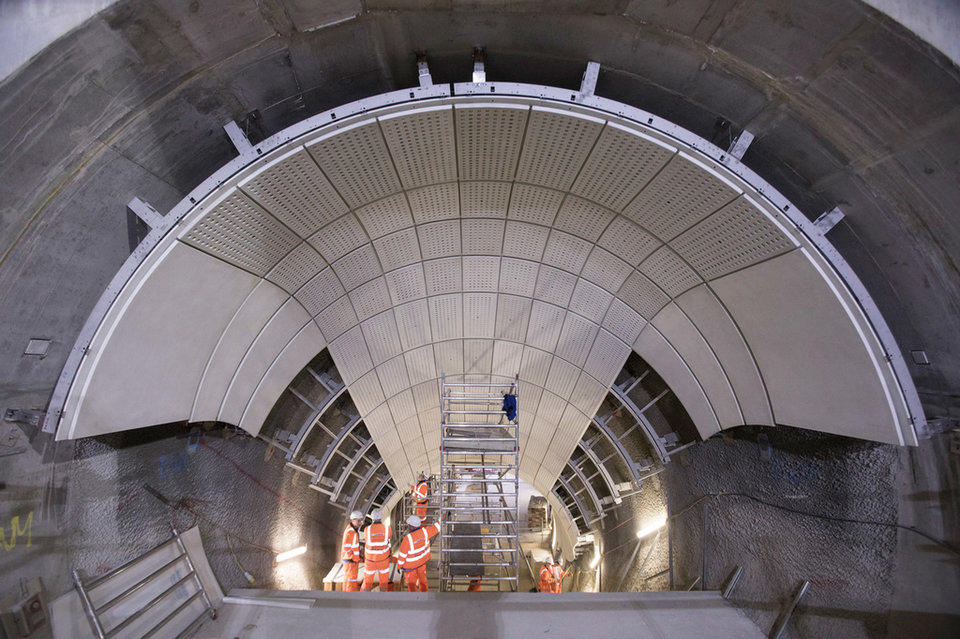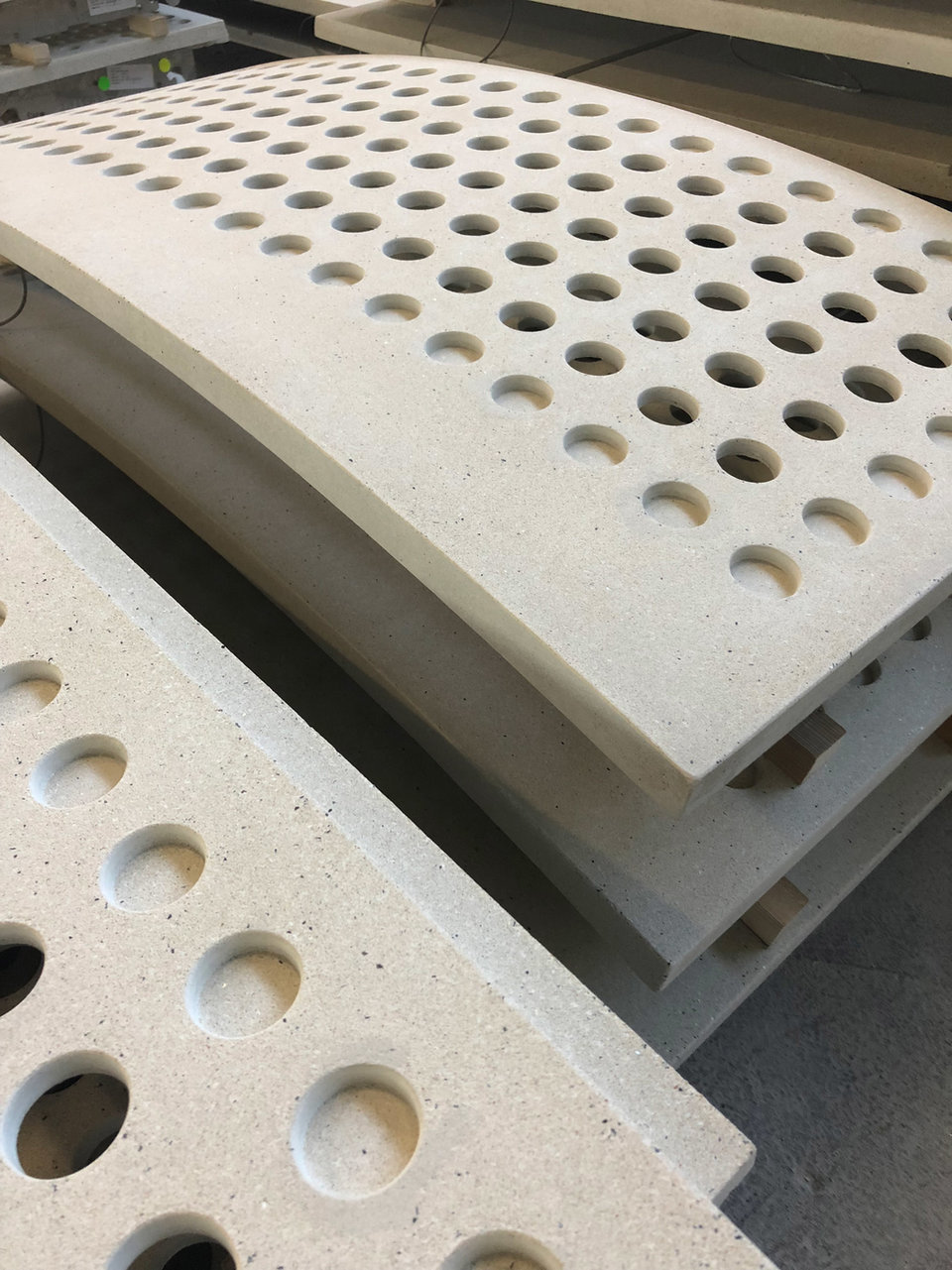
The complex 3D shapes necessary for the cladding following the tunnel design made it necessary to look for a durable material that at the same time can be formed to provide double-curved elements including perforation for acoustic and other purposes.
The overall design for the lining panels was carried out in accordance with the architect´s design and then further enhanced by Lindner’s R&D department to suit the respective site conditions. Some 9000 panels, involving 342 different panel types and covering approximately 7000m2 were manufactured with the LinCrete lining. A mix design with certain aggregates was required to meet the specified light reflectance value. The surface had to be sand-blasted and an anti-graffiti coating was applied.
As with various products and works on further stations like Paddington, Farringdon and Canary Wharf, the Lindner Group significantly contributed to the interior fit-out of Bond Street Station. A special feature was the customer’s choice of glass-fibre-reinforced concrete (GRC) for the cladding as fire protection of platform, tunnel and escalator structures with the shape of the cladding required to follow the drilled tunnel structures.
So why was GRC selected as the material of choice to develop the station’s interiors? With GRC, the concrete is reinforced with alkali-resistant glass fibres instead of traditional reinforcing steel. This results in enormous building material physics advantages. The weight can be massively reduced, since no minimum overlap of the reinforcing has to be considered. Moreover, degradation of the concrete element is avoided.

The complex 3D shapes necessary for the cladding following the tunnel design made it necessary to look for a durable material that at the same time can be formed to provide double-curved elements including perforation for acoustic and other purposes.
The overall design for the lining panels was carried out in accordance with the architect´s design and then further enhanced by Lindner’s R&D department to suit the respective site conditions. Some 9000 panels, involving 342 different panel types and covering approximately 7000m2 were manufactured with the LinCrete lining. A mix design with certain aggregates was required to meet the specified light reflectance value. The surface had to be sand-blasted and an anti-graffiti coating was applied.


